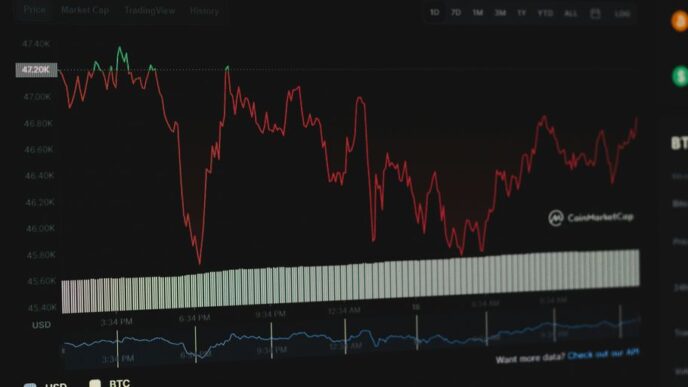
By AI Trends Staff
The federal government continues its halting effort to field an enterprise cloud strategy, with Lt. Gen. Jack Shanahan, who leads the Defense Department’s Joint AI Center (JAIC), commenting recently that not having an enterprise cloud platform has made the government’s efforts to pursue AI more challenging.
“The lack of an enterprise solution has slowed us down,” stated Shanahan during an AFCEA DC virtual event held on May 21, according to an account in FCW. However, “the gears are in motion” with the JAIC using an “alternate platform” for example to host a newer anti-COVID effort.

This platform is called Project Salus, and is a data aggregation that is able to employ predictive modeling to help supply equipment needed by front-line workers. The Salus platform was used for the ill-fated Project Maven, a DOD effort that was to employ AI image recognition to improve drone strike accuracy. Several thousand Google employees signed a petition to protest the company’s pursuit of the contract, and Google subsequently dropped out.
Shanahan recommends the enterprise cloud project follow guidance of the Joint Common Foundation, an enterprise-wide, multi-cloud environment set up as a transition to the Joint Enterprise Defense Infrastructure program (JEDI). The JEDI $10 billion DOD-wide cloud acquisition was won by Microsoft in October, was challenged by Amazon and has been stuck in legal battles since.
“It’s set us back, there’s no question about it, but we now have a good plan to account for the fact that it will be delayed potentially many more months,” Shanahan stated.
That plan involves a hybrid approach of using more than one cloud platform. At Hanscom Air Force Base in Bedford, Mass., for instance, the Air Force’s Cloud One environment is using both Microsoft Azure and Amazon Web Services.
“I will never get into a company discussion, I’m agnostic. I just need an enterprise cloud solution,” Shanahan stated. “If we want to make worldwide updates to all these algorithms in the space of minutes not in the space of months running around gold discs, we’ve got to have an enterprise cloud solution.”
Joint Common Foundation Aims to Set Up Migration to JEDI
The Joint Common Foundation, announced in March, is an enterprise cloud-based foundation intended to provide the development, test and runtime environment—and the collaboration, tools, reusable assets and data—that the military needs to build, refine, test and field AI applications, according to a JAIC AI Blog post.
“The Infrastructure and Platform division is building an enterprise cloud-enabled platform across multiple govCloud environments in preparation for the JEDI migration,” stated Denise Hodge, Information Systems Security Manager, who is leading the effort to develop the Joint Common Foundation.

The JCF has the following design goals:
- Reduce technical barriers to DoD-wide AI adoption.
- Accelerate security assessments of AI products to support rapid authorization decisions and AI capability deployment.
- Create standardized development, security, testing tools, and practices to support secure, scalable AI development.
- Facilitate the concept of secure re-use of AI resources, software, tools, data, and lessons learned that capitalize on the progress made by each JCF AI project.
- Encourage efficiencies by finding patterns in JCF customer needs and creating solutions that are repeatable to build core products that advance AI development
- Mitigate risk by providing a common, standardized, and cyber-hardened infrastructure and platform for AI development, assessments, and rapid deployment promotion.
Hodge has spent much of her career supporting Chief Information Officers and Authoring Officials in various IT ecosystems in the Department of Defense, concentrating especially on cybersecurity. “Cybersecurity is the thread that binds the enterprise cloud together,” she stated.
She described four pillars of security to promote cyber engagement and governance: infrastructure security; secure ingest, ongoing authorization and continuous monitoring.
“This initiative is to provide a common, standardized, and hardened development platform that promotes a secure AI development ecosystem,” Hodges stated.
JEDI Project Tied Up in Court
In court documents released in March, Amazon argued that the Pentagon’s proposed corrective action approach over the disputed $10 billion cloud contract, is not a fair re-evaluation, according to an account from CNBC.
Amazon was seen as the favorite to win the JEDI contract, until President Donald Trump got involved. Amazon alleges that the President launched “behind the scenes attacks” against Amazon. Some of them were detailed in the memoir of James Mattis, the retired Marine Corps general who served as US Secretary of Defense from January 2017 through January 2019. In the memoir, Mattis stated that President Trump told him to “screw Amazon” out of the contract.
Amazon is seeking to depose a number of people involved in the JEDI recommendation. The dispute is ongoing.
Read the source articles at FCW, JAIC AI Blog post and CNBC.











